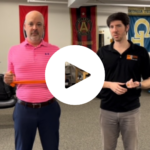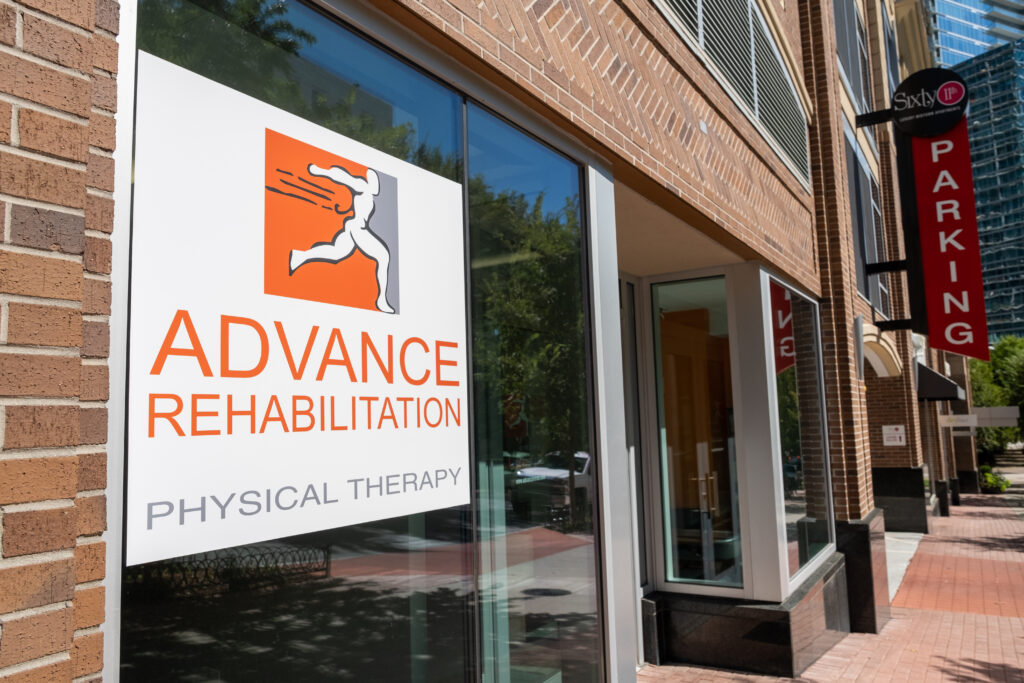
Rock climbing, an exhilarating pursuit demanding strength, agility, and mental acuity, entices enthusiasts with its vertical challenges. As climbers scale rugged terrain, they encounter physical and mental hurdles, often pushing their bodies to the limit. Yet, amidst the thrill lies the risk of shoulder injuries, making physical therapy a crucial aspect of injury prevention and rehabilitation in this dynamic sport.
Andrew Benton, PT, DPT, Clinic Director at Advance Rehabilitation Midtown, has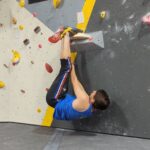 been rock climbing since 2018. In the blog, he will explore one simple exercise you can incorporate into your daily routine to boost your climbing strength, decrease the likelihood of sustaining a shoulder injury, and improve your posture.
been rock climbing since 2018. In the blog, he will explore one simple exercise you can incorporate into your daily routine to boost your climbing strength, decrease the likelihood of sustaining a shoulder injury, and improve your posture.
Andrew mainly climbs in the V4-V6 range, with about 1 new V6-V8 weekly. His favorite types of climbs are either pumpy, pushy mantle moves or balance-intensive vertical climbs. Still, he also loves using his ultimate frisbee-ups to land the occasional double dyno. He and his wife mainly boulder at Stone Summit and The Overlook, both located in Atlanta, Georgia.
Engaging Your Scapular Retraction Muscles:
Today, we will discuss our scapular retraction muscles and how engaging them will take our climbing and good looks to new heights. Our scapular retractors are the muscles between our shoulder blades that help pull our shoulders together. For those interested in anatomy, the scapular retractor muscles are the middle and lower trap(ezius) muscles and our rhomboid muscles.
Our muscles have a length-tension relationship, which can be simplified to mean they are strongest in their mid-range. For example, if you try to hold a dumbbell (or any weight) using your bicep, you can hold the most weight when it is in the middle of the range of motion (at 90 degrees).
Jobs that involve prolonged sitting, such as computer work or studying for school, all result in changes to our resting posture. Our shoulders protract (roll forward), pulling them out of this optimal length-tension relationship. This can lead to impingement (which, over time, can lead to a rotator cuff tear), the wearing down of our labrum, and decreased strength, which can stop you from sending that project you’ve been working on.
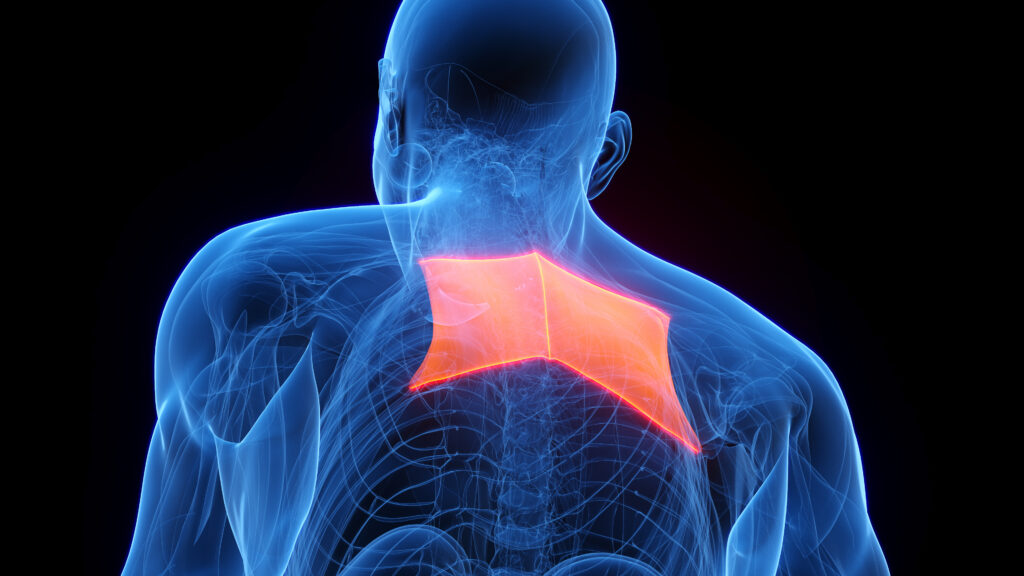
Strengthening and activating our retractors helps restore our posture to its ideal position while also improving the length-tension relationship of our rotator cuff muscles.
The Exercise:
As was said earlier, gravity and slumping pull our shoulders forward, so this one exercise will help bring them backward.
Squeeze your shoulder blades down and together and hold for 10 seconds (10 reps). You should feel the muscles between your shoulder blades engaging if you perform this correctly. For best results, perform this simple exercise three times per day. 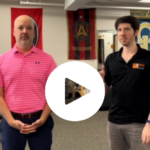
The Progression:
As a progression and way to work on rotator cuff strengthening, add a Theraband and perform bilateral external rotation while retracting your shoulder blades. For best results, perform this exercise three times per day.
Advance Rehab Midtown on 11th Street!
Andrew has experience treating an assortment of climbing (and non-climbing) injuries, such as pulley and collateral ligament sprains, lumbrical strains, elbow tendonitis, shoulder pain, neck and upper back postural pain, and ankle sprains, as well as many other conditions, such as post-operative ACL and rotator cuff tears. He also specializes in more climbing-specific rehab to get you back to your climbing goals. Click here to schedule your appointment online with Andrew and our Midtown team.
Do You Need A Referral for Physical Therapy?
In Georgia, with most insurances, you can go to physical therapy for up to 8 visits without needing a doctor’s referral. So, if you have that nagging injury or something that just happened, we can help assess what is going on and develop a plan to get you back on the wall!
If you have questions about climbing-specific injuries or general physical therapy needs, stop by and/or contact us using the information below.
Advance Rehabilitation Physical Therapy / Midtown
60 11th Street NE, Suite 4
Atlanta, GA 30309
Phone: 404.367.2095
Fax: 404.817.0737

